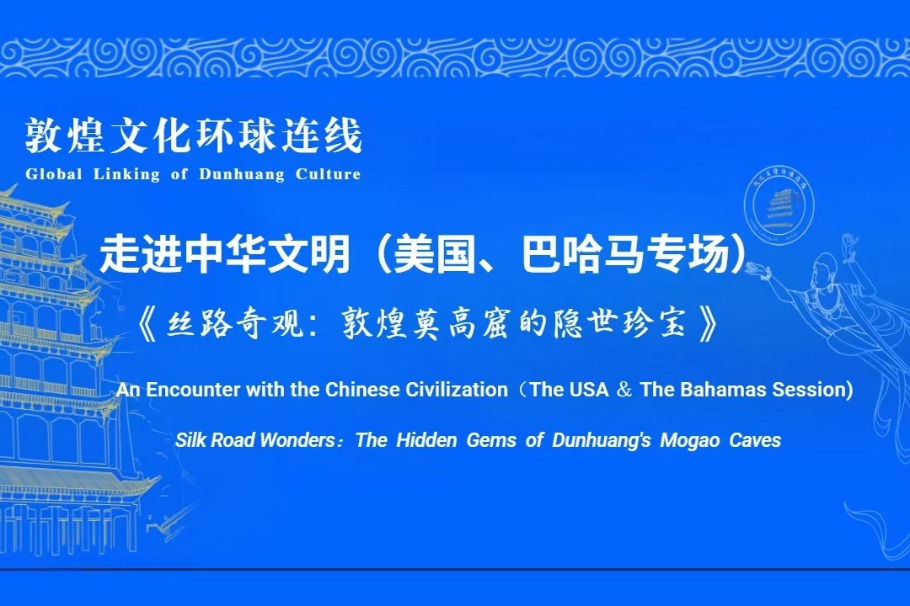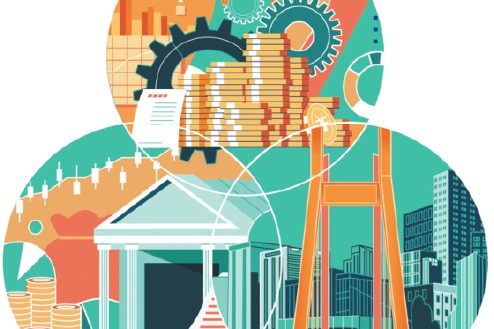Futuristic international cooperation


MA XUEJING/CHINA DAILY
China-Africa cooperation is a testament to the power of joint development and strategic partnership, setting the stage for a new era in global relations
Amid the rapidly evolving global landscape and challenges to global economic recovery, China-Africa cooperation continues to show robust resilience, underpinned by strong complementarities. This resilience is a focus of attention as the Forum on China-Africa Cooperation's summit is to be held in Beijing from Sept 4 to 6.
Since its inception in 2000, the FOCAC has become an important platform for collective dialogue and a mechanism for practical cooperation between China and Africa. Through pragmatic initiatives under this framework, China has maintained its position as Africa's leading trading partner for 15 consecutive years. In 2023, bilateral trade reached a record high of $282.1 billion, an increase of 1.5 percent over the previous year. China is also the largest developing country investor in Africa, with significant investments ranging from the China-Egypt TEDA Suez Economic and Trade Cooperation Zone to the Hisense South Africa Industrial Park. Cumulatively, these investments exceed $40 billion in direct investment and over $700 billion in contracted engineering projects. A number of landmark and "small but beautiful" projects have been implemented in the areas of transport, energy, electricity, housing and people's livelihoods. As of October 2023, Chinese companies had built over 10,000 kilometers of railways, nearly 100,000 km of roads, about 1,000 bridges, about 100 ports and numerous hospitals and schools across Africa.
This economic and trade cooperation goes beyond traditional trade metrics, providing a sustainable boost to Africa's autonomous development. For example, in Kenya, China's largest trading partner in East Africa, China has been an integral part of major infrastructure projects. The Garissa Solar Power Plant, the largest photovoltaic plant in East Africa built by Chinese companies, has significantly alleviated Kenya's power shortages, providing electricity to about 70,000 households and more than 350,000 individuals. Moreover, the construction of the Mombasa-Nairobi Standard Gauge Railway, using Chinese standards and technology, reduced the travel time for over 480 km from 10 hours to just 4.5 hours and created more than 46,000 jobs. In addition, cross-border e-commerce and the green channel for African agricultural exports to China allow products such as fresh flowers and avocados to reach Chinese shelves within 48 hours. These projects, which are closely aligned with Kenya's Vision 2030, significantly enhance Kenya's comparative advantages and integration into the global value chain.
Over the past decade, China and African countries have jointly established several high-level cooperation laboratories, including the China-Africa Joint Research Centre and the China-Africa Innovation Cooperation Center. China-Africa cooperation in the fields of humanities, science and technology enhances the inherent momentum of Africa's development.
In today's dynamic global context, China-Africa cooperation represents a new model of international relations based on mutual respect, trust and benefit — moving away from the traditional donor-recipient paradigm. The upcoming summit, themed "Joining Hands to Advance Modernization and Build a High-Level China-Africa Community with a Shared Future", aims to strengthen this partnership. It reflects the mutual commitment of China and Africa to address global challenges, promote multipolarity and advance economic globalization. This summit will be a milestone in further consolidating China-Africa relations and developing a new type of international relations and shared human destiny.
China-Africa cooperation profoundly influenced the global political and economic landscape, as it sets a new benchmark for South-South cooperation by advocating a win-win approach that respects the sovereign development choices of African nations. Furthermore, it offers a tangible Chinese solution to global development challenges, exemplified by the Belt and Road Initiative, which has significantly boosted infrastructure and industrialization across Africa. In addition, China-Africa cooperation promotes the democratization of international relations by advocating mutual respect and equality in dealings with African nations, thereby contributing to a more equitable global order. Last, it provides innovative responses to common human challenges, as seen in the implementation of the China-Africa Dar es Salaam Consensus, which highlights the importance of solidarity among developing countries.
Looking forward, China-Africa cooperation is poised to expand into new areas, bringing new momentum to the partnership. The digital economy, green development and industrial upgrading are key areas of focus for the future. As Africa's digital transformation accelerates, China's technological prowess in 5G, artificial intelligence, and big data will support significant progress across the continent. Similarly, China's leadership in renewable energy will help Africa facilitate its energy transition with projects such as the Adama Wind Farm in Ethiopia. Furthermore, as China's industrial landscape evolves, more Chinese manufacturers will look to Africa to enhance local manufacturing capabilities and integrate into global supply chains, boosting job creation and economic integration.
China-Africa cooperation is a testament to the power of joint development and strategic partnership, setting the stage for a new era in global relations where shared growth and mutual respect redefine international cooperation. As the world undergoes significant changes, this partnership underscores the potential of South-South cooperation to shape a more multipolar and equitable world order, making a profound contribution to the global narrative of development and cooperation.
The author is an assistant research fellow of the Institute of African Studies at Zhejiang Normal University. The author contributed this article to China Watch, a think tank powered by China Daily.
The views do not necessarily reflect those of China Daily.
Contact the editor at editor@chinawatch.cn.
































